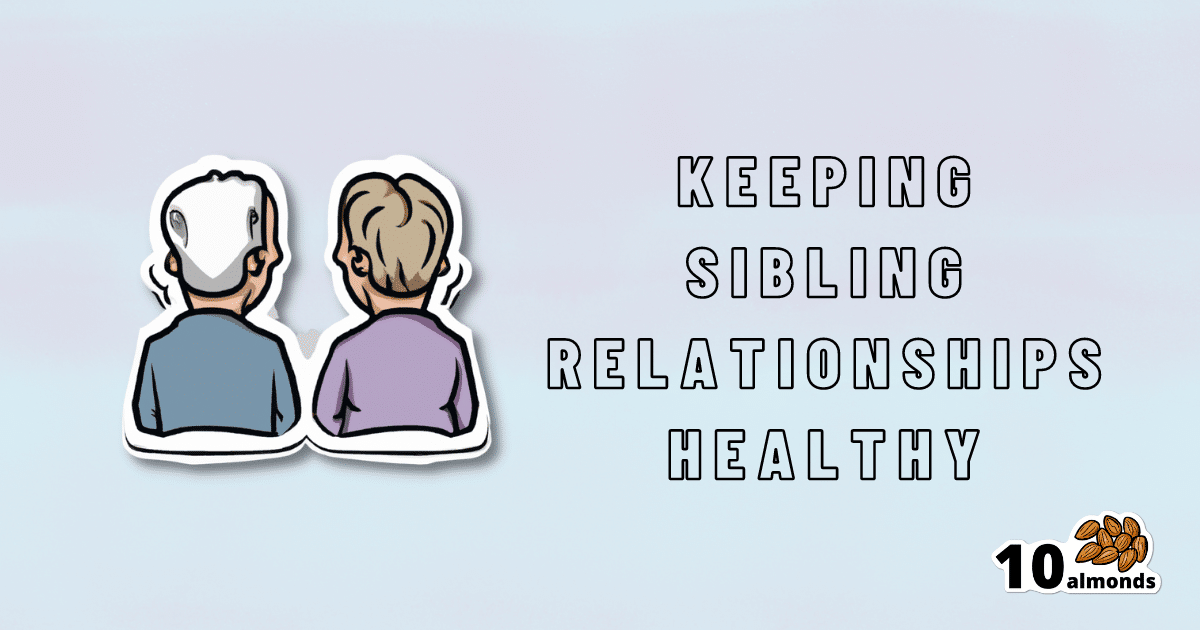Managing Sibling Relationships In Adult Life
Managing Sibling Relationships in Adult Life: Maintaining sibling relationships is crucial as we age. Setting boundaries and accepting healthier choices are key for maintaining familial ties.

Managing Sibling Relationships In Adult Life
After our previous main feature on estrangement, a subscriber wrote to say:
❝Parent and adult child relationships are so important to maintain as you age, but what about sibling relationships? Adult choices to accept and move on with healthier boundaries is also key for maintaining familial ties.❞
And, this is indeed critical for many of us, if we have siblings!
Writer’s note: I don’t have siblings, but I do happen to have one of Canada’s top psychologists on speed-dial, and she has more knowledge about sibling relationships than I do, not to mention a lifetime of experience both personally and professionally. So, I sought her advice, and she gave me a lot to work with.
Today I bring her ideas, distilled into my writing, for 10almonds’ signature super-digestible bitesize style.
A foundation of support
Starting at the beginning of a sibling story… Sibling relationships are generally beneficial from the get-go.
This is for reasons of mutual support, and an “always there” social presence.
Of course, how positive this experience is may depend on there being a lack of parental favoritism. And certainly, sibling rivalries and conflict can occur at any age, but the stakes are usually lower, early in life.
Growing warmer or colder
Generally speaking, as people age, sibling relationships likely get warmer and less conflictual.
Why? Simply put, we mature and (hopefully!) get more emotionally stable as we go.
However, two things can throw a wrench into the works:
- Long-term rivalries or jealousies (e.g., “who has done better in life”)
- Perceptions of unequal contribution to the family
These can take various forms, but for example if one sibling earns (or otherwise has) much more or much less than another, that can cause resentment on either or both sides:
- Resentment from the side of the sibling with less money: “I’d look after them if our situations were reversed; they can solve my problems easily; why do they resent that and/or ignore my plight?”
- Resentment from the side of the sibling with more money: “I shouldn’t be having to look after my sibling at this age”
It’s ugly and unpleasant. Same goes if the general job of caring for an elderly parent (or parents) falls mostly or entirely on one sibling. This can happen because of being geographically closer or having more time (well… having had more time. Now they don’t, it’s being used for care!).
It can also happen because of being female—daughters are more commonly expected to provide familial support than sons.
And of course, that only gets exacerbated as end-of-life decisions become relevant with regard to parents, and tough decisions may need to be made. And, that’s before looking at conflicts around inheritance.
So, all that seems quite bleak, but it doesn’t have to be like that.
Practical advice
As siblings age, working on communication about feelings is key to keeping siblings close and not devolving into conflict.
Those problems we talked about are far from unique to any set of siblings—they’re just more visible when it’s our own family, that’s all.
So: nothing to be ashamed of, or feel bad about. Just, something to manage—together.
Figure out what everyone involved wants/needs, put them all on the table, and figure out how to:
- Make sure outright needs are met first
- Try to address wants next, where possible
Remember, that if you feel more is being asked of you than you can give (in terms of time, energy, money, whatever), then this discussion is a time to bring that up, and ask for support, e.g.:
“In order to be able to do that, I would need… [description of support]; can you help with that?”
(it might even sometimes be necessary to simply say “No, I can’t do that. Let’s look to see how else we can deal with this” and look for other solutions, brainstorming together)
Some back-and-forth open discussion and even negotiation might be necessary, but it’s so much better than seething quietly from a distance.
The goal here is an outcome where everyone’s needs are met—thus leveraging the biggest strength of having siblings in the first place:
Mutual support, while still being one’s own person. Or, as this writer’s psychology professor friend put it:
❝Circling back to your original intention, this whole discussion adds up to: siblings can be very good or very bad for your life, depending on tons of things that we talked about, especially communication skills, emotional wellness of each person, and the complexity of challenges they face interdependently.❞
Our previous main feature about good communication can help a lot:
Share This Post
Learn To Grow
Sign up for weekly gardening tips, product reviews and discounts.




